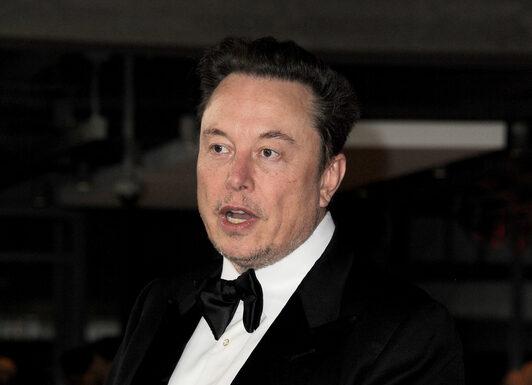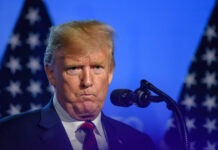Elon Musk has launched a social media response following reports of a heated clash with Treasury Secretary Scott Bessent and his waning influence within the Trump administration. This move showcases the growing tensions that have marked his four-month tenure in government.
The Tesla CEO came under increased scrutiny after The Atlantic published an article titled “The Decline and Fall of Elon Musk,” which detailed his increasingly isolated role in leading the Department of Government Efficiency. Musk reacted by posting multiple messages on X, dismissing the publication as a “zombie publication” and criticizing its majority owner, Laurene Powell Jobs.
The Atlantic article began with an account of a contentious April encounter between Musk and Bessent in the West Wing regarding control of the Internal Revenue Service (IRS). Witnesses reported that Bessent used profanities toward Musk during their disagreement over the leadership of the IRS.
The April 2025 incident was described by multiple witnesses as a rare breach of White House protocol. “It was two billionaire, middle-aged men thinking it was WWE in the hall of the West Wing,” one witness said of the argument.
The confrontation unfolded within earshot of Italian Prime Minister Giorgia Meloni, who was visiting President Donald Trump at the time. An aide intervened to separate the two men as their dispute extended from the Oval Office to the West Wing corridors.
The disagreement focused on Musk’s appointment of Gary Shapley as acting IRS commissioner without Bessent’s consent. Shapley, a former IRS agent known for whistleblowing in the Hunter Biden tax investigation, was Musk’s preferred candidate. Bessent had advocated for his deputy, Michael Faulkender, to lead the agency, which falls under the Treasury Department’s oversight.
During the heated exchange, Bessent criticized Musk for overpromising budget cuts through the Department of Government Efficiency (DOGE) while underdelivering results. According to witness accounts, Musk countered by accusing Bessent of being a Soros agent and managing a failed hedge fund. Bessent ultimately won the power struggle when Trump replaced Shapley with Faulkender after only three days.
This confrontation highlighted ongoing tensions between Musk and other members of the Trump administration. In March, Musk faced criticism from Secretary of State Marco Rubio, Veterans Affairs Secretary Doug Collins, and Transportation Secretary Sean Duffy during a volatile White House meeting organized by Trump. Sources indicated that Cabinet members were frustrated with Musk’s perceived overreach into their agencies.
Administration officials have increasingly criticized Musk’s management style and approach to government efficiency. Several senior Trump officials described Musk as abrasive and unfunny, with some considering him the most irritating person they had encountered in government. His Silicon Valley approach of moving fast and breaking things has clashed with the deliberate pace of federal bureaucracy, creating friction with career officials and political appointees.
Musk’s role as a special government employee limited his service to 130 days within a 365-day period, a constraint that shaped his timeline in Washington, D.C. If his tenure began on Inauguration Day, January 20, his 130-day limit expired by the end of May. Musk announced during a Tesla earnings call in April that he would reduce his government involvement starting in May. “Probably starting next month, in May, my time allocation at DOGE will drop significantly,” Musk said. He indicated he would devote only one or two days per week to government matters for the remainder of Trump’s term.
DOGE has achieved mixed results during Musk’s leadership. The department terminated numerous government grants and contracts while encouraging the firing of thousands of federal employees across multiple agencies. The organization accessed sensitive Treasury Department payment systems containing Americans’ Social Security numbers and bank account information, demonstrating significant reach into government data systems.
However, the department has not delivered on its promised substantial budget savings or deficit reduction. Government spending increased 10 percent compared to the same period last year. According to data from the Treasury Department, revenue grew only 3 percent, resulting in a 23 percent increase in the federal deficit as of March 31. Some of Musk’s initiatives, including weekly progress reports required from federal employees, have quietly been abandoned.
The tension between Musk and Bessent stems partly from their differing philosophies and personalities. Musk advocates for rapid, disruptive change similar to his approach when acquiring Twitter (now X) in 2022, while Bessent represents a more measured, traditional approach to financial management. Their relationship was strained from the beginning, as Musk had lobbied hard for Howard Lutnick to receive the Treasury Secretary position instead of Bessent.
Trump has consistently defended Musk’s work with the department despite the internal conflicts. The president told reporters that Musk was uncovering significant fraud, corruption, and waste within the federal government. Trump stated he would prevent Musk from working on any government matters that might create conflicts of interest with his business ventures.
Congressional Democrats have launched investigations into the department’s access to sensitive data systems and challenged the organization’s authority to shut down federal agencies. A group of 19 Democratic state attorneys general filed a lawsuit questioning the department’s constitutional authority, while Senate Democrats investigated reports that the organization accessed federal student loan data without proper authorization.
White House Press Secretary Karoline Leavitt defended the administration’s approach to internal disagreements, stating that conflicts represent a normal part of any healthy policy process. She emphasized that all officials serve at the pleasure of President Trump, who ultimately makes final decisions on policy matters. One unnamed Trump adviser expressed frustration with Musk’s methods. “I think everyone’s ready to move on from this part of the administration,” the adviser said.
Musk’s reduced schedule beginning in May reflected both the constraints of his special government employee status and Tesla’s declining performance, which has prompted investor pressure for him to refocus on the electric vehicle company. His announcement came during a Tesla earnings call where the company reported disappointing sales figures, contributing to stock price declines that have affected his personal wealth and influence.
As of May 25, 2025, Elon Musk has announced a return to a “24/7” work schedule focusing on his companies, including X, Tesla, SpaceX, and xAI. Despite Musk’s reduced involvement, the department continues to operate within the Trump administration, with ongoing initiatives and controversies.











